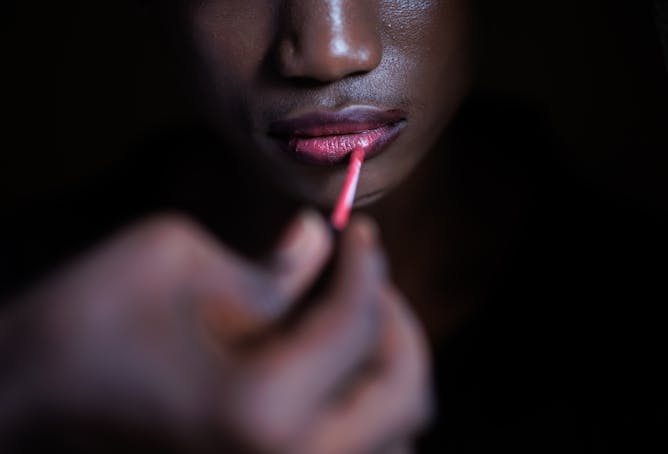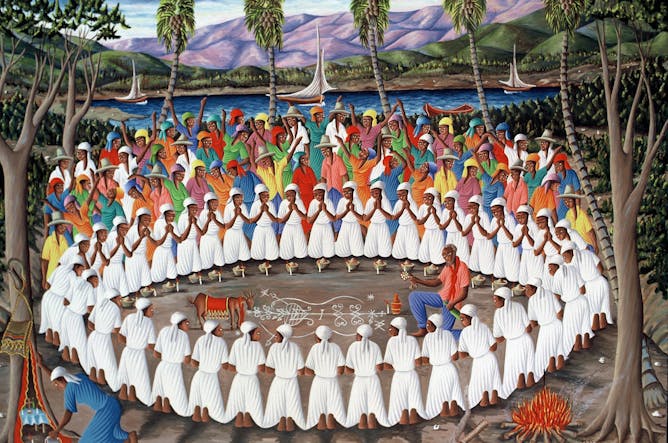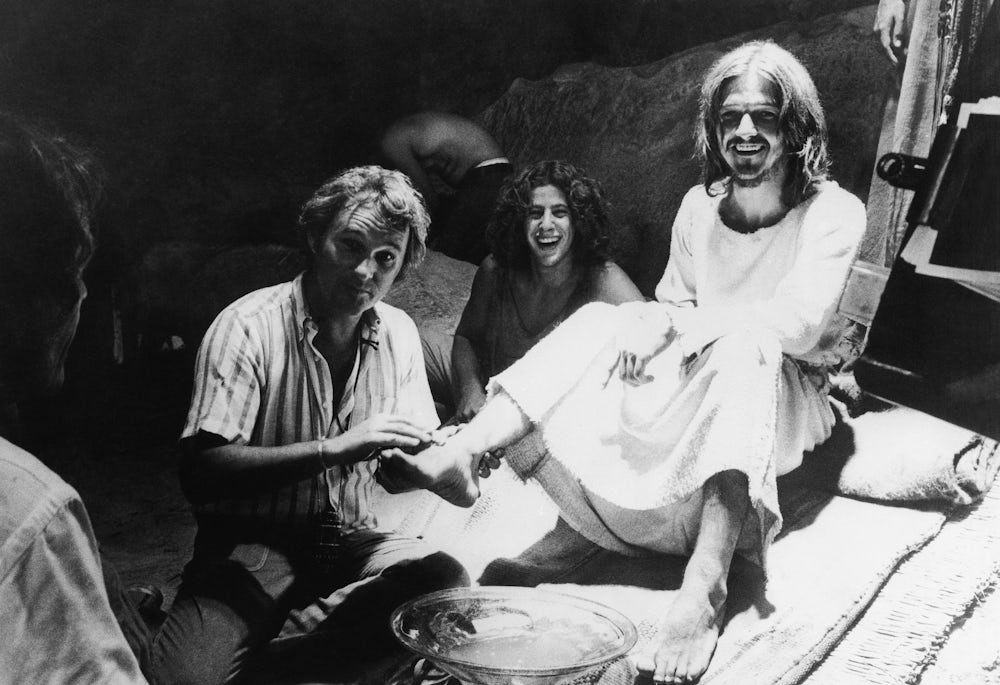|
Politics is rife with references to the Holocaust, from claims that COVID-19 lockdowns were “like Nazi Germany” to debate over the Israel-Hamas war today. Yet actual memories of the Holocaust slip further away each day, with a dwindling number of survivors trying to preserve their stories.
Today, on the 79th anniversary of the liberation of Auschwitz, many young Americans cannot identify basic facts about Hitler’s genocide of European Jews. Even less understood is the Third Reich’s persecution of Romani people. Yet the histories of these two genocides are interwoven, sometimes in chillingly close ways, as Vanderbilt University historian Ari Joskowicz explains. Increasingly, he writes, Jewish and Romani activists are collaborating on efforts to
support Holocaust education and counter prejudice – “linked by a sense that understanding history is essential for the defense of liberal democracy.”
The Conversation’s podcast recently relayed an especially intimate form of Holocaust remembrance. When Auschwitz prisoners got tattooed, it reduced their identities to numbers. Decades later, some of their descendants are choosing to have those codes inked on their own arms. It’s a bittersweet tribute to love and survival, and a vow not to let the world forget.
This week we also liked articles explaining what drives musical tastes, how climate change is affecting winter weather and why you shouldn’t disparage “voodoo.”
[ Get a global perspective on the news, with the best of The Conversation’s journalism from around the world, twice weekly. ]
|

Franz Roselbach, a Roma survivor of the Holocaust who was sent to Auschwitz when he was 15, attends a ceremony at the former Sachsenhausen concentration camp in 2006.
Sean Gallup/Getty Images
Ari Joskowicz, Vanderbilt University
Many young people today know little about the murder of European Jews during the Holocaust, and even less about the murder of Romani communities.
|

Gender-affirming surgeries give transgender people the opportunity to align their bodies with their gender identity.
Luke Dray/Getty Images
Harry Barbee, Johns Hopkins University; Bashar Hassan, Johns Hopkins University; Fan Liang, Johns Hopkins University
The findings push back against the notion that many transgender people end up wishing they hadn’t gone through with gender-affirming surgeries.
|

An engraving from 1992 representing a voodoo rite in Haiti.
Nicolas Jallot/Gamma-Rapho via Getty Images
Danielle N. Boaz, University of North Carolina – Charlotte
Shows, movies and day-to-day language promote myths about voodoo that reinforce more than a century of stereotypes and discrimination, writes a scholar of Africana studies.
|
|
|
-
Jane Kuehne, Auburn University
Lots of factors can influence your music taste, from your age and where you’re from to the personality traits you have.
-
Richard B. (Ricky) Rood, University of Michigan
As the climate changes and weather warms, the freezing line is shifting, bringing rain and ice to regions not prepared for it.
-
Victor Peskin, Arizona State University
While the International Court of Justice lacks enforcement powers, its new provisional measure could heighten pressure on both Israel and Hamas to save civilian lives and free the hostages in Gaza.
|
|
The Conversation Quiz 🧠
|
-
Fritz Holznagel, The Conversation
Here’s the first image and question from this week’s special visual quiz:

This photo from the set of the 1973 film "Jesus Christ Superstar" shows which director, who died on Jan. 20 at age 97?
- A. William Friedkin
- B. Norman Jewison
- C. Gordon Parks
- D. Andrew Lloyd Webber
Test your knowledge
|
|